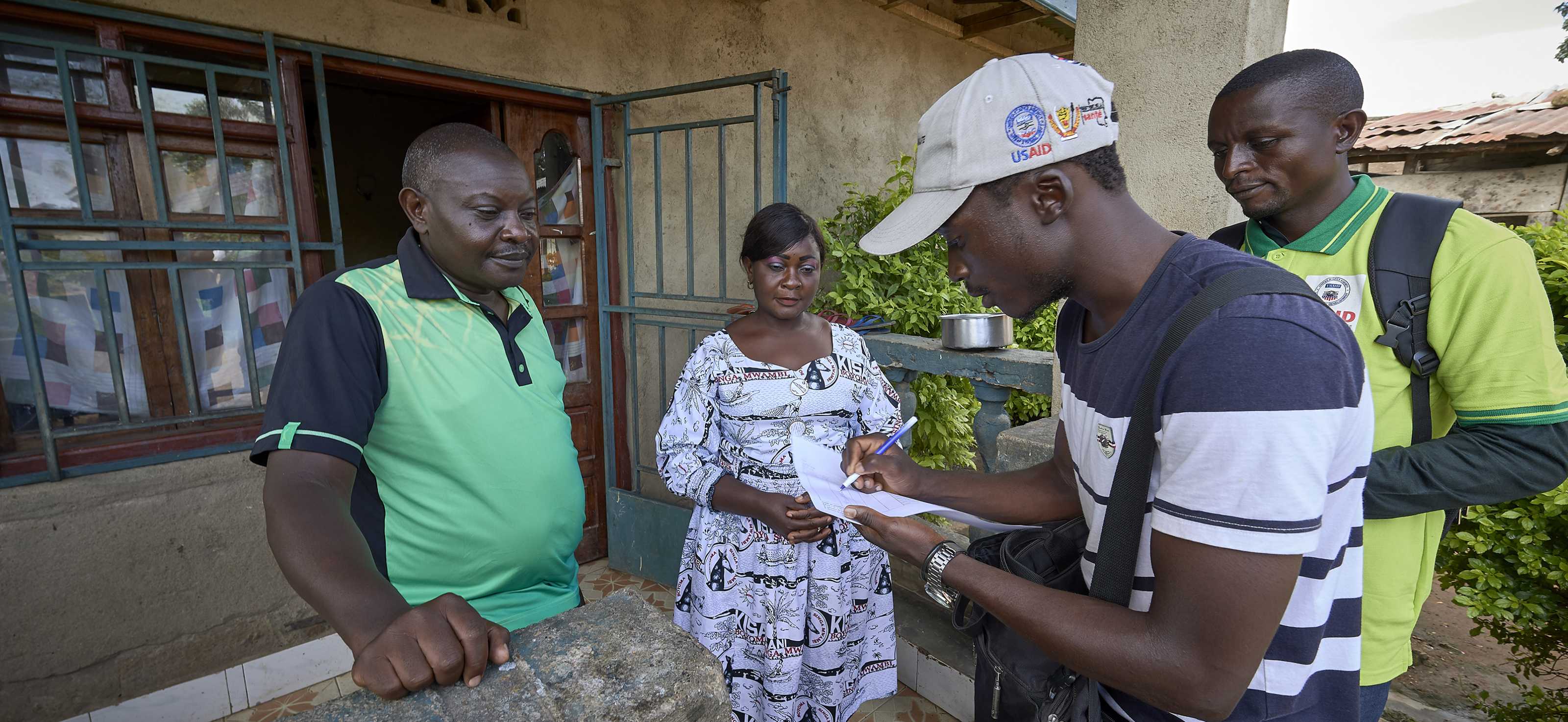John Mathe walks the red clay roads of eastern Democratic Republic of Congo, mindful of the extreme risks he’s taking. After all, Ebola is spreading like wildfire, and even leaving the house presents serious danger to his health and well-being. In addition to the virus, rampant misinformation and distrust of outsiders — sometimes to the point of violence — put his life on the line.
But someone needs to do the critical work of contact tracing to stop Ebola from spreading out of control. That’s why, as a volunteer community health promoter, John heads out every day, clipboard in hand. Like so many front-line health workers, he believes the reward of saving lives is worth the risks to his own health.
Beating Ebola through contact tracing
Ebola is one of the most terrifying words a community can hear, and the 2018 Ebola outbreak was the worst in the DRC’s history. The virus infected 3,400 people and killed more than 2,200 as it spread across the region.
Just as Ebola spreads village by village, house by house, so must the effort to fight it. John’s work as a contact tracer helps health officials to know where the deadly virus is spreading. He knocks on doors, talking to families one by one, asking questions that can inform decisions:
“Is anyone in your home sick?”
“Have you attended the funeral of anyone who died from Ebola recently?”
“Has everyone here been vaccinated against Ebola?”
John records the responses and geo-coordinates them in his paperwork. At the end of his day, he’ll feed that information into an online database that brings together similar data from a host of players — from local front-line health workers and volunteers like himself to national and international health organizations. This information is then shared with health centers and Ebola treatment facilities so the health workers there can cross-reference their patients’ histories with known Ebola cases to determine where the virus is spreading and inform other community members who may have been exposed.
This is how we beat Ebola every time it emerges, and it starts with a young man’s bravery and care for his community. And this is why, two intense years later, the massive spike in cases finally dwindled to zero.
Your support equips health workers on the front lines
At Corus World Health, we believe the power to effect change — to truly make a sustainable difference in the lives of communities in need — starts within the community itself.
John Mathe’s volunteering to go up against a deadly virus like Ebola is a testament to the rich resources available in even the poorest of communities. We put out the call for what was needed. Mathe and many others like him responded, fully aware of the risks they were to take. Then we ensured they were trained and supported to do their jobs as effectively and safely as possible — because, as trusted friends and neighbors, they hold the best chances of reaching the skeptics, the fearful and the misinformed.
Meanwhile, thanks to the generous support of our donors, Corus World Health also ensured clinics in the hot zone were stocked and equipped with knowledge and supplies to respond to Ebola cases, and where to turn to when help was needed. This was not the first or even the 10th outbreak we had fought in our 60-year history. Each time, success has come from our ability to translate international resources and expertise into tools that work for local communities — and for local health workers like John.
John and his fellow health care heroes are the tip of the spear in beating Ebola, and they carry courage, knowledge and care for their communities down every dirt path on and off the map. And wherever they go, Ebola is on the run.

